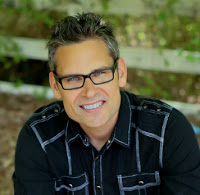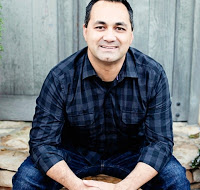Christian Apologetics is the art of defending the Christian faith against intellectual attacks from non-Christians as well as showing it is true through rational argumentation and evidence. Christian Apologetics establishes that Christianity is true through evidence and reason while responding to objections against it as well. The term “apologetics” comes from
the Greek word apologia which literally means defense. It’s what lawyers do for their clients in a court of law. They provide an apologia for their client’s innocence. The word apologia can be found in 1 Peter 3:15 which is a passage that explicitly commands us to do apologetics. It says “But in your hearts revere Christ as Lord. Always be prepared to give an answer to everyone who asks you to give the reason for the hope that you have. But do this with gentleness and respect,” <– This is from the NIV and translates “apologia” as “answer”.
the Greek word apologia which literally means defense. It’s what lawyers do for their clients in a court of law. They provide an apologia for their client’s innocence. The word apologia can be found in 1 Peter 3:15 which is a passage that explicitly commands us to do apologetics. It says “But in your hearts revere Christ as Lord. Always be prepared to give an answer to everyone who asks you to give the reason for the hope that you have. But do this with gentleness and respect,” <– This is from the NIV and translates “apologia” as “answer”.
There are Christians however who don’t think apologetics is important. They say “You should just preach the gospel and let The Holy Spirit work”. Below are quotations from 10 apologists who give their reasons for thinking that Christian Apologetics is important. Of course, if you’ve been following this blog for a while then you already know my take on the importance of apologetics. I mention in yesterday’s blog post how God used it to prevent me from apostatizing, so I won’t include any citations from myself in this article.
1: C.S Lewis
“If all the world were Christian, it might not matter if
all the world were uneducated. But, as it is, a cultural life will exist
outside the Church whether it exists inside or not. To be ignorant and simple
now – not to be able to meet the enemies on their own ground – would be to
throw down our weapons, and to betray our uneducated brethren who have, under
God, no defense but us against the intellectual attacks of the heathen. Good
philosophy must exist, if for no other reason, because bad philosophy needs to
be answered.”
all the world were uneducated. But, as it is, a cultural life will exist
outside the Church whether it exists inside or not. To be ignorant and simple
now – not to be able to meet the enemies on their own ground – would be to
throw down our weapons, and to betray our uneducated brethren who have, under
God, no defense but us against the intellectual attacks of the heathen. Good
philosophy must exist, if for no other reason, because bad philosophy needs to
be answered.”
[1]C. S. Lewis, from “Learning in War-Time,” a sermon
preached in the University Church of St. Mary the Virgin, Oxford,
in 1939
preached in the University Church of St. Mary the Virgin, Oxford,
in 1939
2: William Lane Craig
of Reasonable Faith
“When I travel around the country speaking in various
churches, I meet parents all the time who come up to me after the service and
say something like this: “Oh, if only you had been here two or three years ago!
Our son (or our daughter) had questions about the faith which no one could
answer. And now he (or she) is far from the Lord.” It just breaks my heart to
meet parents like this. The fact is that our Christian high school students and
college students are intellectually assaulted in secular high school and
university by overwhelming relativism conjoined with every manner of
non-Christian philosophy. We dare not send these kids out to battle armed with
rubber swords and plastic armor. We need to prepare our kids for war….Begin
simple, get more profound as they grow. It’s not enough anymore to just read
Bible stories to our kids. They need doctrine, and they need apologetics. I
have to tell you the truth: I find it very difficult to understand how parents
today can risk having children without having had some training in Christian
apologetics. I think it’s that important!”
churches, I meet parents all the time who come up to me after the service and
say something like this: “Oh, if only you had been here two or three years ago!
Our son (or our daughter) had questions about the faith which no one could
answer. And now he (or she) is far from the Lord.” It just breaks my heart to
meet parents like this. The fact is that our Christian high school students and
college students are intellectually assaulted in secular high school and
university by overwhelming relativism conjoined with every manner of
non-Christian philosophy. We dare not send these kids out to battle armed with
rubber swords and plastic armor. We need to prepare our kids for war….Begin
simple, get more profound as they grow. It’s not enough anymore to just read
Bible stories to our kids. They need doctrine, and they need apologetics. I
have to tell you the truth: I find it very difficult to understand how parents
today can risk having children without having had some training in Christian
apologetics. I think it’s that important!”
3: Bobby Conway
The One Minute Apologist
The One Minute Apologist
“By studying apologetics
it shows you are serious about evangelism. It’s saying that you care about the
world enough to study in order to answer their hard questions”
it shows you are serious about evangelism. It’s saying that you care about the
world enough to study in order to answer their hard questions”
[2]from the “On Guard DVD
Companion”
Companion”
4:
Sarah Ankenman
Sarah Ankenman
President
of The International Society of Women in Apologetics
of The International Society of Women in Apologetics
“Those who oppose
apologetics do so because they fear that by teaching people ‘what’” they believe,
they will lose sight of the ‘who’. This is a rational fear to have, as there
are definitely those out there who have lost sight of the reason for doing
apologetics in the first place. However, just because there are people
misrepresenting the point of apologetics, it doesn’t mean you should throw out
the baby with the bathwater. It does not mean you can ignore the hard questions
your youth may have and substitute it with worship services and water balloon
fights every week because that is easier and less controversial. Nancy
[Pearcey] writes, ‘There’s nothing wrong with good clean fun. But the force of
sheer emotional experience will not equip teens to address the ideas they will
encounter when they leave home and face the world on their own. Young people
whose faith is mostly emotional are likely to retain it only as long as it is
making them happy. As soon as a difficult crisis comes along, it will
evaporate.’ This is true across the board, not just with youth, but with mom
and dad as well.”
apologetics do so because they fear that by teaching people ‘what’” they believe,
they will lose sight of the ‘who’. This is a rational fear to have, as there
are definitely those out there who have lost sight of the reason for doing
apologetics in the first place. However, just because there are people
misrepresenting the point of apologetics, it doesn’t mean you should throw out
the baby with the bathwater. It does not mean you can ignore the hard questions
your youth may have and substitute it with worship services and water balloon
fights every week because that is easier and less controversial. Nancy
[Pearcey] writes, ‘There’s nothing wrong with good clean fun. But the force of
sheer emotional experience will not equip teens to address the ideas they will
encounter when they leave home and face the world on their own. Young people
whose faith is mostly emotional are likely to retain it only as long as it is
making them happy. As soon as a difficult crisis comes along, it will
evaporate.’ This is true across the board, not just with youth, but with mom
and dad as well.”
5:
Lee Strobel
Lee Strobel
“The average Christian in
the pew is not reading books by Richard Dawkins and Christopher Hitchens, but
their neighbors and coworkers are. I think congregations are putting pressure
on churches to equip them better, educate them more and give them opportunities
to grow in this area. Churches that have relied in the past on a lifestyle
evangelistic approach that lacks intentionality need to be a little more
intentional in reaching people and bringing answers to their questions. I’m all
for lifestyle evangelism, but I’m also in favor of intentionality, where we
seek out opportunities for spiritual conversations and are equipped to explain
the gospel and why we believe it.”
the pew is not reading books by Richard Dawkins and Christopher Hitchens, but
their neighbors and coworkers are. I think congregations are putting pressure
on churches to equip them better, educate them more and give them opportunities
to grow in this area. Churches that have relied in the past on a lifestyle
evangelistic approach that lacks intentionality need to be a little more
intentional in reaching people and bringing answers to their questions. I’m all
for lifestyle evangelism, but I’m also in favor of intentionality, where we
seek out opportunities for spiritual conversations and are equipped to explain
the gospel and why we believe it.”
6:
R.C Sproul
R.C Sproul
“Before I can call upon
Christ as my Savior, I have to understand that I need a savior. I have to
understand that I am a sinner. I have to have some understanding of what sin
is.I have to understand that God exists. I have to understand that I am
estranged from that God, and that I am exposed to that God’s judgment. I don’t
reach out for a savior unless I am first convinced that I need a savior. All of
that is pre-evangelism. It is involved in the data or the information that a
person has to process with his mind before he can either respond to it in faith
or reject it in unbelief.”
Christ as my Savior, I have to understand that I need a savior. I have to
understand that I am a sinner. I have to have some understanding of what sin
is.I have to understand that God exists. I have to understand that I am
estranged from that God, and that I am exposed to that God’s judgment. I don’t
reach out for a savior unless I am first convinced that I need a savior. All of
that is pre-evangelism. It is involved in the data or the information that a
person has to process with his mind before he can either respond to it in faith
or reject it in unbelief.”
(From, Defending Your Faith)
7: Rob Lundberg
“The truth is that every believer already, whether they
realize it or not, does apologetics. The question now becomes, do they want to
continue to do it poorly or do they want to do it well? We all get questioned or challenged about our
faith, whether it is a direct challenge or an indirect one. We can respond by
saying, ‘I just believe’ or ‘That’s just the mystery of God,’ but when we do we
are essentially telling the one challenging and questioning us that their
inquiry is not worth our time or our energy. “
realize it or not, does apologetics. The question now becomes, do they want to
continue to do it poorly or do they want to do it well? We all get questioned or challenged about our
faith, whether it is a direct challenge or an indirect one. We can respond by
saying, ‘I just believe’ or ‘That’s just the mystery of God,’ but when we do we
are essentially telling the one challenging and questioning us that their
inquiry is not worth our time or our energy. “
8: Brett Kunkle
“Ultimately, apologetics points people to our hope,
Jesus Himself. That’s why “we demolish
arguments and every high-minded thing that is raised up against the knowledge
of God, taking every thought captive to the obedience of Christ” (2 Corinthians
10:4-5). Objections raised against Jesus
must be demolished. But notice
something. The Bible doesn’t say we
demolish people. Rather we demolish
arguments. Belittling others is not our
goal. Merely winning arguments is not
enough. Instead, we remove obstacles of
doubt to Christianity so people can take a serious look at Christ, the only
source of hope for this world.”
Jesus Himself. That’s why “we demolish
arguments and every high-minded thing that is raised up against the knowledge
of God, taking every thought captive to the obedience of Christ” (2 Corinthians
10:4-5). Objections raised against Jesus
must be demolished. But notice
something. The Bible doesn’t say we
demolish people. Rather we demolish
arguments. Belittling others is not our
goal. Merely winning arguments is not
enough. Instead, we remove obstacles of
doubt to Christianity so people can take a serious look at Christ, the only
source of hope for this world.”
(From the article, What Is Apologetics: Arguing Evangelism)
9: Mark Mittelberg
“Apologetics has never been more important than it
is now. People throughout our culture, including many of our friends, family
members, neighbors, and co-workers, are becoming increasingly secular. They’re
moving farther and farther from Christian teachings and morality. The Bible
mandates that we must be ready to give an answer to everyone who asks (1 Pet. 3:15), so this is not an optional
activity for Christians or the church. We must confront the errors of our
culture and present in their place the truth and gospel of Christ.”
is now. People throughout our culture, including many of our friends, family
members, neighbors, and co-workers, are becoming increasingly secular. They’re
moving farther and farther from Christian teachings and morality. The Bible
mandates that we must be ready to give an answer to everyone who asks (1 Pet. 3:15), so this is not an optional
activity for Christians or the church. We must confront the errors of our
culture and present in their place the truth and gospel of Christ.”
10: Brian Auten
Apologetics 3:15
“I want to see churches start their own apologetics
ministries because it is our scriptural mandate to ‘always be prepared to give
an answer.’ Yet there often is very little preparation going on! When
challenges to faith come, people struggle to find substantive answers. This may
cause some believers to resort to a sort of “believe it anyway” mentality; for
others it causes them to abandon the faith altogether. Research by the Barna
Group has shown that a majority of young people walk away from the faith around
the time they go to college or university. They simply have not been equipped
to deal with the secular challenges that come against their faith.”
ministries because it is our scriptural mandate to ‘always be prepared to give
an answer.’ Yet there often is very little preparation going on! When
challenges to faith come, people struggle to find substantive answers. This may
cause some believers to resort to a sort of “believe it anyway” mentality; for
others it causes them to abandon the faith altogether. Research by the Barna
Group has shown that a majority of young people walk away from the faith around
the time they go to college or university. They simply have not been equipped
to deal with the secular challenges that come against their faith.”
References
Discover more from Cerebral Faith
Subscribe to get the latest posts sent to your email.














